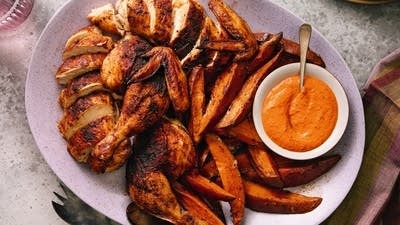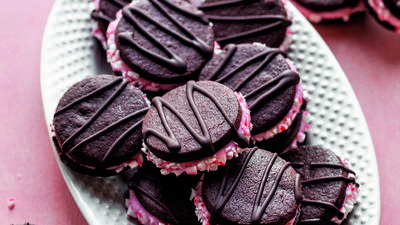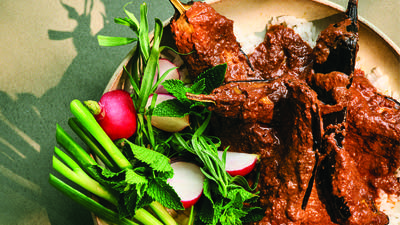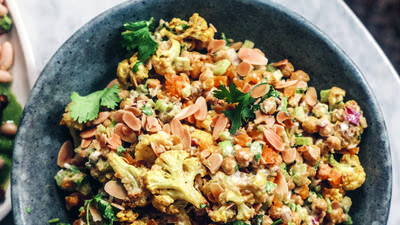
A candidate running for the White House sneezes and CNN brings in a handkerchief analyst. One area of campaigning has been blithely unanalyzed until now -- food. Every politician uses food to stump.
Frederick Douglass Opie, professor of history and foodways at Babson College, digs in.
Lynne Rossetto Kasper: Candidates use food as a way of meeting up with potential voters, but there's a lot more going on than just eating, right?
Frederick Douglass Opie: Certainly. Food is so much about identifying with people. When you're an outsider candidate, you're going into a community and you want to identify with these potential voters. You want them to feel as quickly as possible, “I’m one of you.” One way to do that is to mingle and meet and greet potential voters around food.
LRK: But is there anybody there coaching them about what they're eating?
FDO: What happens in most campaigns is, if you have enough money, you have a campaign staff set up. There's a portion of that campaign staff who are full-time people, professionals. But the largest majority of the campaign staff at the local level are volunteers. These volunteers many times are district leaders and they know their districts and they know their areas. Those are the people who the staffers go to and say, "Where should we go do a retail politic event? Where should we meet and greet voters?" That person will say, "Look, this is a great restaurant. This is a great place for breakfast. This is a great coffeehouse. This place has great barbecue." That's usually how it's set up. You have staff depending on the expertise of volunteers on the local level.
LRK: When you're dealing with different cultural groups, there are so many chances to unconsciously insult people if you don't understand what you're eating.
FDO: Absolutely, and it's up to that activist at the local level. You're depending on the staff to not only know the place to eat, but how to eat what's there or how to drink what's there. I think a good example was the 2012 presidential primary in Florida, as you had candidates going down to South Florida trying to woo the Cuban-American vote. Now, it's one thing for you to go to a coffee event -- but there's coffee, and then there's Cuban coffee. If you don't understand that -- you're about to take a shot of essentially Red Bull that looks like coffee -- you can be in big trouble.
LRK: Did you see any goofs?
FDO: You know, I saw a goof in the primary in South Carolina right before Rick Perry dropped out. He went down there and he dropped out after a number of gaffes that he made in different arenas. There was an instance where he was at a barbecue event, and he made the mistake of talking about how good Texas barbecue is. Now, you don't go down to South Carolina and brag about Texas barbecue and expect people to start voting for you.
LRK: Historically, has there ever been an instance where food has really influenced an election?
FDO: Absolutely. The thing to keep in mind is we here in North America are the products of British culture. So this whole idea of food and politics goes all the way back to Europe and to the U.K., where people used food to buy votes and to buy the influence of potential voters. So, this is nothing new. It's got an old history where you would see a candidate essentially march people to the polls, vote, and as soon as they voted, turn the corner -- right around the corner they have a tavern set up where you could drink and get your belly full. So, this has a long history that we're talking about now.
Before you go...
Each week, The Splendid Table brings you stories that expand your world view, inspire you to try something new, and show how food connects us all. We rely on your generous support. For as little as $5 a month, you can have a lasting impact on The Splendid Table. And, when you donate, you’ll join a community of like-minded individuals who love good food, good conversation, and kitchen companionship. Show your love for The Splendid Table with a gift today.
Thank you for your support.
Donate today for as little as $5.00 a month. Your gift only takes a few minutes and has a lasting impact on The Splendid Table and you'll be welcomed into The Splendid Table Co-op.




